Following a recent retrospective charting his career, we ask what drives this abstract painter.

What made you want to be a painter, and when did you know that was what you wanted to be?
My interest in painting began to kindle when I was a teenager, around 13 or 14. In 1962, I went to High Wycombe School of Art. I was there for four years during which time drawing and painting was for me a total immersion – looking, looking and looking. I would draw constantly, always carrying a sketchbook. I drew anything around me, people, trees, cafes, street life, churches, buildings and so on. I was greatly inspired by one teacher in particular, Terry Scales, who was the first person to buy one of my paintings. He recently sent me an endearing letter during my exhibition recalling those days.
You attended Camberwell and Slade schools of art. What lasting effects did these institutions have on your work?
I was at Camberwell School of Arts and Crafts from 1966-69. It was amazing. Mario Dubsky and Keith Vaughan were hugely inspiring, and the work I produced then has circled back to inspire new work. I go back to go forwards. My development is cyclic. You can never really go back, but it is part of a whole that regenerates, offering new possibilities. My postgraduate years at the Slade School of Fine Art were an emptying out period of formal investigation into space, surface, size, scale, atmospheric colour and transformation of geometry. The grid has recycled in various ways throughout the following decades.
This story is from the February 2018 edition of Artists & Illustrators.
Start your 7-day Magzter GOLD free trial to access thousands of curated premium stories, and 9,000+ magazines and newspapers.
Already a subscriber ? Sign In
This story is from the February 2018 edition of Artists & Illustrators.
Start your 7-day Magzter GOLD free trial to access thousands of curated premium stories, and 9,000+ magazines and newspapers.
Already a subscriber? Sign In

Still life IN 3 HOURS
Former BP Portrait Award runner-up FELICIA FORTE guides you through a simple, structured approach to painting alla prima that tackles dark, average and light colours in turn
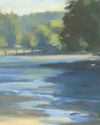
Movement in composition
Through an analysis of three masterworks, landscape painter and noted author MITCHELL ALBALA shows how you can animate landscape composition with movement
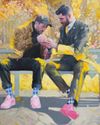
Shane Berkery
The Irish-Japanese artist talks to REBECCA BRADBURY about the innovative concepts and original colour combinations he brings to his figurative oil paintings from his Dublin garden studio
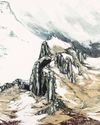
The Working Artist
Something old, something new... Our columnist LAURA BOSWELL has expert advice for balancing fresh ideas with completing half-finished work
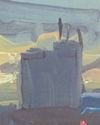
Washes AND GLAZES
Art Academy’s ROB PEPPER introduces an in-depth guide to incorporating various techniques into your next masterpiece. Artwork by STAN MILLER, CHRIS ROBINSON and MICHELE ILLING
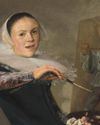
Hands
LAURA SMITH continues her new four-part series, which encourages you to draw elements of old master paintings, and this month’s focus is on capturing hands

Vincent van Gogh
To celebrate The Courtauld’s forthcoming landmark display of the troubled Dutch master’s self-portraits, STEVE PILL looks at the stories behind 10 of the most dramatic works on display
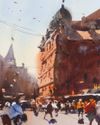
BRING THE drama
Join international watercolour maestro ALVARO CASTAGNET in London’s West End to paint a dramatic street scene
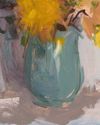
Serena Rowe
The Scottish painter tells STEVE PILL why time is precious, why emotional responses to colour are useful, and how she finds focus every day with the help of her studio wall

Bill Jacklin
Chatting over Zoom as he recovers from appendicitis, the Royal Academician tells STEVE PILL about classic scrapes in New York and his recent experiments with illustration